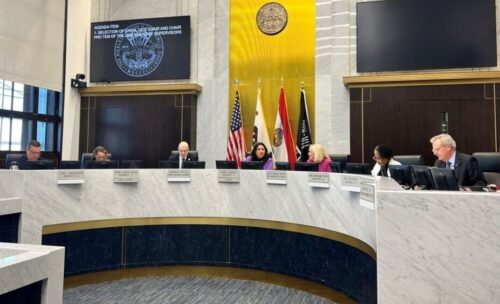President Biden Must Get Aggressive with Israeli Prime Minister Bibi

By Danny R. Johnson – Political News Editor
WASHINGTON, DC–The war in Gaza is the most difficult of all the foreign policy challenges President Joe Biden faces. That is not because of the apparent geopolitical stakes; as Biden often says, China poses the most critical long-term challenge, and Russia is next. But while important, what happens between Israel and the Palestinians, as well as elsewhere in the Middle East, has not been in the same league.
Yet because of the war in Gaza, with its linkage to overall Israeli-Palestinian relations and risks of escalation to other parts of the region, there may soon be an explosion dwarfing all other concerns facing Biden and his team.
There is also another important reason that the war in Gaza now occupies center stage for the Biden administration: America’s attitudes towards and relations with Israel. Since Israel’s creation in the wake of World War II, most Americans have considered U.S. ties with the Jewish state as unique, both because of its founding as a democracy committed to values like America’s and a shared perspective of “never again” stemming from the Holocaust. Even when Israel has fallen short, as for many years in its treatment of Palestinians, most Americans have given Israel the benefit of the doubt. Except on a handful of occasions, Washington consistently “has had Israel’s back” in Middle East crises and conflicts.
For both interests and values reasons, therefore, it was natural that immediately following the horrendous October 7 Hamas assault on southern Israel, in which some 1,200 people were killed and 240 more taken hostage, Biden declared total support for Israel’s military retaliation. His position was initially supported by most Americans, mainly on a bipartisan basis.
But then the toll of destruction in Gaza mounted — as of this past week, more than 22,000 Palestinians have been killed, at least 60,000 more wounded, and more than 90 percent of the Strip’s population of more than two million has been rendered homeless with no safe place to go. All of this has been vividly displayed on U.S. television and cable media. Thus, the Biden administration began to rethink its hands-off support for Israel’s military campaign — but only for its tactics, not its overall policy of destroying Hamas.
Washington worked through intermediaries, principally Qatar, to obtain a” pause” in the Gaza fight to get Hamas to release some hostages and increase the flow of humanitarian assistance from Egypt into Gaza. Following the end of the pause, however, U.S. appeals to Israel have been limited to trying to minimize civilian casualties in Gaza or, as Secretary of State Antony Blinken put it, “taking more effective steps to protect the lives of civilians.” But so long as Israel continues to pursue the destruction of Hamas, significantly limiting civilian casualties is impossible, as the Biden team must recognize. Notably, the world sees that Israel’s Prime Minister Benjamin Netanyahu has rebuffed Biden, which impacts U.S. credibility elsewhere, especially since the United States is universally seen as Israel’s sole patron. Indeed, America’s reputation for promoting humanitarian concerns has been severely damaged.
Both factors argue for the president to press Israel immediately to declare a cease-fire, not just a temporary “pause,” but one designed to end the war. Indeed, suppose we are to believe Israel’s estimates. In that case, Hamas’s military capacities have already been heavily degraded, and the possibility of it again being able to mount a severe attack on Israel is low.
The gravity of risks in the Levant and potentially throughout the region means that the United States (and others) cannot once again return to indifference when this war ends. Biden has shown he is aware of this and has recommitted himself to pursuing the so-called “two-state solution.” For years, however, it has been a mantra. While it is the best outcome, its prospects are now even more remote given renewed Israeli fears provoked by the October 7 attack and its attendant atrocities, as well as increased Palestinian bitterness over the massive destruction and loss of life in Gaza.
Yet time is not on the side of “orderly diplomacy” that has been the usual course for a half-century. There is already a significant risk of a new intifada on the West Bank, as most Palestinians have lost any hope of Israel’s willingness to recognize their fundamental human rights, much less permit a Palestinian state. They also see that Israel will not stop West Bank settlers from displacing and even murdering Palestinian civilians. The Palestinians also cannot count on support from Arab states. No Arab leader cares for the Palestinians, and none has even called into question their existing treaties with Israel or the so-called Abraham Accords.
Nor is it conceivable that, to do the necessary diplomatic work, the U.N., or countries other than the U.S. can lead or have any chance of success. Nothing will be possible unless Washington takes charge and makes clear to Israel that, as the occupying power, it must change its policies and practices toward the Palestinians. On December 6, U.N. Secretary-General Antonio Guterres reiterated his “appeal for a humanitarian cease-fire to be declared.” In the U.N. Security Council Friday, the United States vetoed the resolution and was joined only by Britain’s abstention. The Biden administration thus tied itself even more to Israel’s slaughter in Gaza, conducted in significant part with U.S.-supplied bombs. The veto further cheapened U.S. political and moral standing and made it harder for Biden to be seen as a credible diplomatic leader once the war ended. Until October 7, President Biden and his team gave Israel-Palestinian relations short shrift. So far, everyone has been lucky that the crisis has not spread across the region, with the possibility of a wider war. Even so, Israel and Hezbollah have come to blows; Yemen has taken some potshots; and while Iran has been careful not to get directly involved, its proxies in Iraq and Syria have been engaged in some incidents.
But luck is not a policy. The president must know that the Israeli-Palestinian crisis cannot again be pushed aside when this war ends. He needs to rebuild trust in the United States for strategic competence and then as an honest broker. He must show that the United States will place its interests first, not anyone else’s. He needs to augment his foreign policy inner circle with outside experts in strategy and regional dynamics but free from biases. And he needs to be prepared to run risks in American domestic politics.
It is a problematic agenda, but nothing less will enable President Biden to protect and promote U.S. strategic, political, and moral interests.






